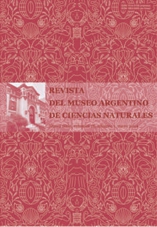Bernardino Rivadavia y las Ciencias Naturales
Resumen
Bernardino Rivadavia and the Natural Sciences. The contributions of Rivadavia to the development
of science in general, and in particular the natural sciences are analyzed during the Revolución de Mayo and
subsequent years. His contributions are highlighted in four stages, first as Secretary of the Primer Triunvirato
(1811-1812), then as Plenipotentiary Minister in Europe (1814-1820), continuing as Minister of the Governor
of Buenos Aires (1821-1824), and finally as President (1826-1827). The four stages have in common a constant
concern for science education, by creating and restoring academic institutions, and the aggrandizement of the
country. The events of those years with very critical situations, such as the “Conspiracy of the Spanish”, the
maintenance of the independence army, the war with the Brazilian Empire, besides the local fighting, despite its
gravity, not deviating him from his deep convictions that science would contribute to the future development of
the country. The University of Buenos Aires and the Natural History Museum should be eternally grateful to him
for their foundation and initial impulses.
of science in general, and in particular the natural sciences are analyzed during the Revolución de Mayo and
subsequent years. His contributions are highlighted in four stages, first as Secretary of the Primer Triunvirato
(1811-1812), then as Plenipotentiary Minister in Europe (1814-1820), continuing as Minister of the Governor
of Buenos Aires (1821-1824), and finally as President (1826-1827). The four stages have in common a constant
concern for science education, by creating and restoring academic institutions, and the aggrandizement of the
country. The events of those years with very critical situations, such as the “Conspiracy of the Spanish”, the
maintenance of the independence army, the war with the Brazilian Empire, besides the local fighting, despite its
gravity, not deviating him from his deep convictions that science would contribute to the future development of
the country. The University of Buenos Aires and the Natural History Museum should be eternally grateful to him
for their foundation and initial impulses.
Texto completo:
PDFEnlaces refback
- No hay ningún enlace refback.

This work is licensed under a Creative Commons Attribution 3.0 License.

